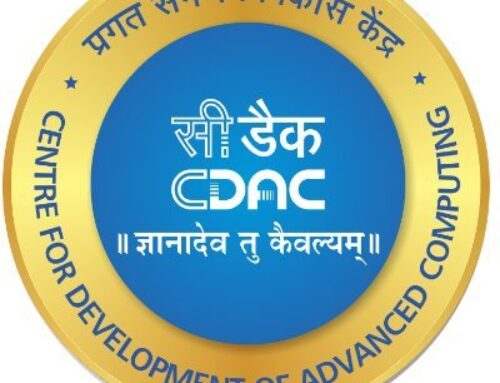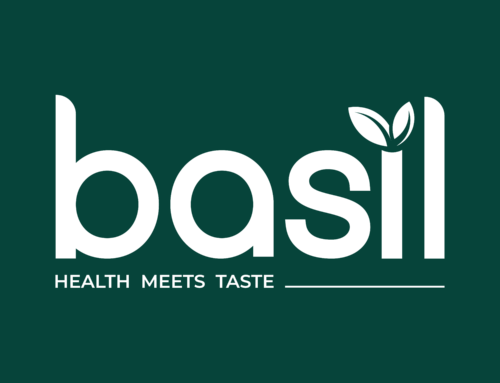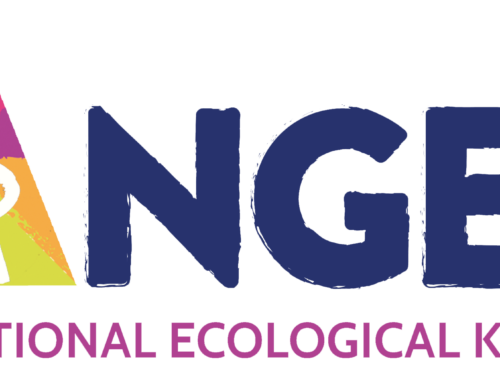Our Innovation journey as a stratup is a series of steps that has been taken starting from long ago though an industrial laboratory scale prototype in 2004, with a novel approach to scale up waste to biodegradable plastic production – much ahead of its time. The idea is steadily converted into reality spanning several years, teamwork, curiosity, persistence, and a dash of serendipity. Currently, we are addressing major global issues of protecting natural ecosystem from mounting organic pollutants by converting these wastes into high-end value added products – biodegradable plastic, biofuel and bio-derivatives; reduce cost of Bioplastic, slashing import, produce biofuel from wide range of waste source to replace fossil fuel at reduced price.
Inception: A Solution to save the world
India is one of largest plastic consumer globally, generating approximately 9.3 million tonnes (Mt) of plastic waste annually. This accounts for almost 20% of the global total of 52 Mt in 2024. India also has excellent opportunity in waste management, replacing single-use plastics with bioplastics, and adopting circular economy practices. With the huge waste valorisation capacity, India could lead the fight against this global crisis.
The good news is, the best-in-class biodegradable plastic can be produced from waste organics. Poly Hydroxy Alkanoates (PHA), a natural biodegradable polymer derived from microbial cultures and is the future of plastic due to excellent plastics properties, non-toxic/histocompatibility and complete natural biodegradability.
What motivates us?
“PHAs are a class of bioplastics that can be derived from renewable resource also, making them the best material to stop plastic pollution”
After a period of stagnation over the past few years, the overall global plastic production is picking up again 2023 onwards. Polyhydroxyalkanoate market was valued at USD 93 million in 2023 and is projected to reach USD 195 million by 2028, growing at 15.9% CAGR from 2023 to 2028 (www.marketsandmarkets.com). Market growth in Europe is the highest which can be attributed to increasing awareness towards plastic waste and strict norms and regulations. The Polyhydroxyalkanoate (PHA) bioplastic market in India is part of the broader biodegradable plastics industry, which is gaining traction due to increasing environmental concerns, government regulations, and a growing awareness of sustainable alternatives to traditional plastic. Advancement in technology is set to decrease the high cost of producing PHA, which was until a barrier to its widespread adoption. The packaging sector, especially for food and beverages, is one of the largest markets for PHA bioplastics due to their biodegradability and safety for food contact. As consumers demand more sustainable packaging, the use of PHAs in this industry is expected to grow significantly. Complete nontoxic nature of this plastic makes it suitable for medical applications, such as sutures, drug delivery systems, and implants. Additionally, its biodegradability makes it ideal for agricultural applications, such as mulch films and controlled-release fertilizers among many other uses.
Ideation: Building a Vision
Armed with curiosity and prior vast knowledge of waste management, Dr. Partha Chakravarty dove into research. He could successfully built lab scale prototype of PHA production in cost effective unique continuous mode reactor train to produce PHA-biomass from Dairy wastewater. With an aim to scale up in future he patented the technology. After that patent in granted in 2017, the journey begins beyond the academic laboratory. He teamed up with Dr. Sanchita Mukherjee, and the startup Rigel Bioenviron Solutions Pvt Ltd is formed in February 2020. That was the most difficult time of the world as COVID-19 had halted operations, but the true desire to achieve goals kept the team motivated.
“Innovation thrives in environments that encourage exploration without fear of failure”
Our Innovation: Industrial pilot scale demonstration done with competitive recovery rate
Our primary innovation, the PHA biodegradable plastic manufacturing from waste streams in a “continuous mode reactor system in line with waste treatment/ BioCNG production facility”, unique in India and having globally competitive output. We have developed a continuous mode operative process and demonstrated the same in agro based industry-waste showing high recovery rate in our BIG, BIRAC, DBT, Govt of India startup funding completion of which was in April, 2023. Subsequently, we have designed integrated engineering solutions to produce an array of sustainable products from a waste organics source, where we can simultaneously produce BioCNG, Bioplastic and Biofertilizers.
Our technology solution is to mitigate two waste streams – (i) valorizing organic waste reducing pollution and (ii) reducing waste treatment cost and produce bioplastic, biofuel and bioderivatives.
“We are unique in production of PHA bioplastic from waste in India and among very few globally”
Our breakthrough in PHA-bioplastic production technology design enables value recovery from agricultural/ municipal/ industrial organic waste/wastewaters. High cost of PHA is reduced by using waste carbon source and mixed microbes from ETP sludge. Integrating with this we have engineering and technological advancement in production of BioCNG, replacement to CNG as per SATAT scheme or utilizing for electricity generation. We propose a circular NET ZERO approach and reduce carbon foot print, where maximum parts of the wastes are treated as a resource for wealth generation.
Scaling Up: reach us if you have ‘waste’
Waste organics are produced from different sources – be it is industry, agricultural field or domestic household, commercial building and hotel, forest, seaweed or even from carbon rich flue gas. Various waste materials are available throughout India depending on the availability of biomass such as sugar mill pressmud, spent grain from brewery, spent wash from molasses based distillery, spent slop from grain based distillery, cow dung, poultry litter, kitchen waste, fruits and vegetable waste, organic fraction of municipal solid waste (OFMSW), rice mill waste, rice, starch waste, corn silage, Napier grass, paddy straw, wheat straw etc. India possesses a long coastal area with potential for sea weed cultivation which can be a very good substrate. All these wastes can be suitably processed to convert the inherent carbon into polymer having plastic properties, however biodegradable.
Innovation doesn’t stop with only the PHA technology and we continue to accommodate more waste streams to explore. Team Rigel continues to innovate, exploring new engineering designs and automation.
Authors:
Director, Rigel Bioenviron Solutions Pvt Ltd
Dr. Partha Chakravarty
Director, Rigel Bioenviron Solutions Pvt Ltd







